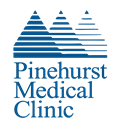February 19th, 2025

By Michael Gillespie, MD, MPH
According to the CDC, someone in the United States experiences a heart attack every 40 seconds.
Recognizing the signs of a heart attack is crucial, as seconds matter, and immediate action can save lives. A heart attack happens when the blood flow that delivers oxygen to the heart muscle is reduced or blocked. The narrowing of arteries often causes this blockage due to the buildup of fat, cholesterol, and other substances.
Common Signs of a Heart Attack:
- Chest discomfort
- Discomfort in the arms, back, neck, jaw, or stomach
- Shortness of breath
- Breaking out in a cold sweat
- Nausea
- Rapid or irregular heartbeat
- Feeling unusually tired
- Feeling lightheaded
However, it is important to know that heart attacks can present differently in women, and the symptoms may be more subtle, which can result in significant confusion or misdiagnoses, ultimately delaying their treatment. According to the CDC, heart disease is the leading cause of death among women in the United States, it’s extremely important to try to identify the symptoms shared below, and not brush them off as hormonal changes, stress, or other less serious conditions.
The Mayo Clinic shares that heart attack symptoms for women may differ from those for men due to women experiencing blockages in smaller arteries or, in some cases, having no severe blockage in an artery. Additionally, women tend to experience a decline in estrogen levels and a rise in body fat around vital organs as they approach menopause.
If you experience any of these symptoms, call 911 right away.
Heart Attack Symptoms in Women:
- Upper back pressure that feels like squeezing or a sensation of a rope tied around the chest
- Anxiety
- Shortness of breath
- Upset stomach
- Pain in the shoulder, back, or arm
- Unusual tiredness and weakness
Heart attacks can happen to anyone at any age, but knowing your risk factors is one of the best ways to prepare. Risk factors are traits and lifestyle habits that can increase your likelihood of heart attacks like:
- Diabetes
- High Blood Pressure
- Age
- Family History
- High Cholesterol
- Smoking
- Gender
Speaking with your healthcare provider can help you create a prevention plan tailored to your needs. Share your challenges and ask for support. Healthcare providers rely on you to communicate how you feel and what assistance you need. By working together, you can best manage heart disease.
Back





